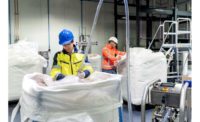Sultan Et and SEALPAC join forces in Turkey to launch modified atmosphere packaging for fresh red meat

Leading manufacturer Sultan Et (www.sultanet.com), located on the outskirts of the city of Ankara in Turkey, has been producing high-quality meat for almost 50 years. In 2017, the company introduced a new range of fresh red meat products in trays under modified atmosphere. SEALPAC spoke with Mustafa Bilikçi, Managing Director at Sultan Et, about the challenges and benefits of this recent project, for which he joined forces with SEALPAC and its Turkish distributor Feyzi AS (www.feyzi.com.tr).
Still a family company
Sultan Et was founded by Mr. Ahmet Bilikçi, together with his brother and two aunts, in 1973. At the very start, their production area measured just 500 m² and the focus was on producing a small selection of delicacies, such as sucuk (typical dried sausages from Turkey) and pastrami, primarily for the Ankara region. This was done with 40 people in total, who were producing approximately 75 tons per month. At that time, pre-packaging of meat was not so much relevant in Turkey yet.
In the year 2000, the second generation entered the company. Mr. Mustafa Bilikçi, son of the founder, took up the position of CEO. Since he was 10 years old, he had been working in the company as a ‘trainee’ under the care of his father. With the impulse of the new generation, the company grew quickly and its activities spread across Turkey.
Investments in new equipment were made, while its product range was extended with salami, sausages, hams, roasts and smoked meats. As consumer behavior in Turkey had changed, those products all had to be pre-packaged for sufficient shelf life, so several new deboning and packaging lines were acquired. Furthermore, offices and warehouses were opened in for example Istanbul, Antalya and Izmir.
Successful by nature
Nowadays, the company has approximately 230 employees, most of which work in the meat factory in Elmadağ. In 2019, a second office in Istanbul will be opened, bringing the total to six. As such, Sultan Et expects to grow to 300 employees by the end of the year.
Mustafa Bilikçi said, “Where there used to be 600 different meat manufacturers in the Ankara region several decades ago, today there is really only one leader: Sultan Et. Why? Because my father, based on his 40 years of experience, taught us to be honest, to focus on our core business, to reinvest any money earned into the company, and to provide the highest meat quality possible by using the best technology available. That is our family culture. It makes us one of the top 1,000 industrial companies in Turkey!”
Sultan Et applies a strict quality assurance system according to FSSC 22000 in its production. The company controls each step in the process, from acquiring carcasses to delivering finished products at retail. Its red meat is selected from domestic cattle breeds that are raised in well-chosen parts of Central and Eastern Anatolia plateaus.
As the company’s website states, “We are manufacturing products that everybody can consume safely and share with loved ones.” These days, Sultan Et is producing a wide variety of processed and fresh meat products, such as pastrami, sausages (including sucuk), döner, salami and various types of sliced meat. Primary focus is on beef, veal, lamb and poultry, including offal, which are sold under the brand names Sultan, Serdar and Anadolu.
Teaming up with Feyzi and SEALPAC
The main business of the company is fresh meat, although a small part is also frozen product. The latter concerns the Antalya region, where Sultan Et is supplying around 300 first-class hotels with large meat cuts. In fresh meat, the company is producing approximately 1,100 tons per month, divided in vacuum packaging and MAP. This second packaging system was introduced only recently. As Production Manager Murat Byikli explains, “In the year 2012, we started investigating the possibility for applying modified atmosphere packaging to our fresh meat. For this project, we teamed up with Feyzi. Finally in 2017, based on their advice, we invested in a new line for packaging minced meat and fresh red meat cubes under MAP.”
With 53 people, including 18 technicians across the country, and being a proud representative of major brands in food manufacturing, such as SEALPAC, Feyzi has been at the service of its clients with slaughtering, deboning, cutting, further processing and packaging lines for over half a century. It offers a full-service package, including consultation, design, installation, training, spare parts, maintenance and repair with regard to the equipment it supplies.
Confidence to invest
Bilikçi says, “In the poultry industry in Turkey, SEALPAC is the market leader in terms of tray-sealing equipment. We knew that from our contacts with well-known companies such as Beypi and Erpilic. For some reason, it had not been able to enter the red meat segment just yet. However, our company highly values equipment manufactured in Germany. Within our factory, we have approximately 80 different brands of equipment, but 95% of them are made in Germany. This is why we involved SEALPAC in the decision process. We visited their factory in Oldenburg, as well as a reference customer. This in the end led us to invest in the new line with a SEALPAC A7 traysealer in 2017. “
He continues, “Feyzi played a central role in the project. Our contact person, Mr. Serkan Atay, has a personal style that matches our company culture. He knows the market extremely well and is different from other suppliers. Where they tend to only emphasize their advantages, Serkan carefully compared the advantages and disadvantages of all the equipment offered. This gave us the necessary confidence to make the investment.”
Flexible, yet high outputs
After running the line for approximately one year, and seeing the success of the MAP products, a second line with SEALPAC A7 traysealer was installed by the end of 2018. Both lines consist of processing equipment (e.g. mixing and portioning), a denester, check-weigher, metal detector, labeller and printer.
Byikli says, “Feyzi helped us by designing the lines in such a way that they would fit in our limited production space, and by achieving optimal synchronization of all the steps in the production process. Another important issue for us is maintenance. Here, we knew Feyzi would be able to offer us excellent service, whilst SEALPAC equipment is known for its low spare parts usage.”
The A7 traysealers and their unique tooling quick exchange system provide Sultan Et with the required flexibility to run different batch sizes with minimum changeover times, yet still achieve high outputs. Both machines in the factory are equipped with servo technology, hence requiring less maintenance and reducing air consumption by up to 90%. Stainless steel doors and covers allow for optimal hygiene and easy cleaning.
Byikli adds, “And most important, the SEALPAC traysealers are extremely operator-friendly.”
Growing the market
Sultan Et currently runs two different tray sizes (190 x 144 and 275 x 175 mm) on the MAP lines. Each tray is sealed with InsideCut technology for an excellent appearance at retail and has a peel tab for easy opening by the consumer. By applying a gas mixture of CO² and O², the shelf life of the products is between 8 to 10 days. Products are primarily sold at retailer BIM, which has almost 7,000 stores across Turkey. Around 170 own refrigerated trucks deliver Sultan Et’s fresh meat across the country on a daily basis. With the second MAP line installed by the end of 2018, production volume has now doubled, hence opening up possibilities for supplying more customers.
Some years ago, Mustafa Bilikçi was chosen as the youngest president of the Turkish Red Meat Association (www.etbir.org) at the age of 35. This organization represents the Turkish red meat industry, for example with regard to political decisions and regulations. After serving for two years, he was re-elected for another two years, only to step down on January 1st 2019. He was also the Chairman of the National Red Meat Council (www.ukon.org.tr), a joint venture of meat manufacturers, farmers, universities and consumers, for two years. One of its priorities is establishing sustainable food production in Turkey. Based on his extensive market knowledge, Mustafa Bilikçi predicts a strong growth in modified atmosphere packaging in the coming years.
“In 2017, red meat consumption in Turkey was around 1.3 million tons per year, off which only 1,000 tons per month in MAP,” he explains. “We expect the annual red meat consumption to reach 1.5 million, with MAP making up at least 25%. Not only because Turkish consumers get more used to modified atmosphere packaging, but also because standardization and hygiene in Turkish meat production is improving. Therefore, we expect to see our MAP products on more and more retail shelves in the near future!”
For more information visit www.sealpacinternational.com.
Looking for a reprint of this article?
From high-res PDFs to custom plaques, order your copy today!




